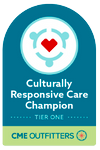What Is Obsessive-Compulsive Disorder(OCD)?
Obsessive-Compulsive Disorder (OCD) is a mental health condition that causes a person to have recurring, unwanted thoughts, images, or urges (obsessions) that are distressing and difficult to ignore. These obsessions often lead to the development of repetitive behaviors or mental rituals (compulsions) that the individual feels compelled to perform in an attempt to reduce anxiety or prevent something bad from happening. OCD can have a huge impact on different aspects of a person’s life, including work, school, relationships, and overall well-being. It’s important to note that while everyone may experience intrusive thoughts or engage in repetitive behaviors occasionally, individuals with OCD experience these symptoms to a degree that makes their daily tasks severely overwhelming.
What Can Cause or Trigger OCD?
The exact causes or triggers of obsessive-compulsive disorder (OCD) are not fully understood, but some aspects can contribute to its development, such as:

Genetic Predisposition
OCD may have a hereditary component, as the condition runs in families. A person’s chance of having OCD or related disorders increases if they have a family history of the disorder.
Brain Abnormalities
Imbalances and abnormalities in certain neurotransmitters, such as serotonin, dopamine, and glutamate, have been implicated in OCD.
Changes in brain structure and function, particularly in areas involved in decision-making, impulse control, and emotional regulation, may also play a role in the development of OCD symptoms.
Environmental Factors
Traumatic or stressful life events, such as abuse, neglect, or loss, can trigger or exacerbate OCD symptoms in some individuals. Additionally, chronic stress or significant life changes, such as moving to a new country or even financial difficulties, could contribute to the onset of OCD symptoms.
What are the Different Types of Obsessive-Compulsive Disorder (OCD)?
Contamination OCD
Contamination OCD involves an overwhelming fear of germs or dirt, leading individuals to compulsively wash or avoid certain objects or environments to reduce anxiety and prevent contamination.
Checking OCD
Checking OCD is characterized by persistent doubts and fears about whether tasks have been completed correctly, leading to repetitive checking behaviors to alleviate anxiety and uncertainty.
Harm OCD
Harm OCD includes intrusive thoughts and fears about causing harm to oneself or others, leading individuals to engage in compulsive rituals to prevent harm from occurring, often resulting in significant distress and anxiety.
Hoarding OCD
Hoarding OCD, officially known as hoarding disorder, is characterized by extreme difficulty discarding possessions, regardless of their actual value, leading to cluttered living spaces and great anxiety and distress.
Responsibility OCD
Responsibility OCD entails obsessive doubts and fears about making mistakes or causing harm, leading individuals to excessively seek reassurance or perform rituals to reduce their anxious thoughts.
Symmetry OCD
Symmetry OCD causes an overwhelming compulsion for symmetry or perfect alignment, often resulting in repetitive arranging or organizing actions to establish a sense of order, control, and security.
What Are the Symptoms of OCD?
Obsessive-compulsive disorder symptoms can be divided into two different categories, obsessions and compulsions.
Fear of Contamination or Germs
Individuals may experience intense fear or anxiety about coming into contact with germs or contaminants, leading to excessive hand washing or cleaning rituals.
Intrusive Thoughts of Harming Oneself or Others
Continuous thoughts or mental images of causing harm to oneself or others, despite the person having no intention of acting on these thoughts.
Concerns About Symmetry, Order, or Perfection
Feeling a compelling urge for items to be arranged or organized precisely, experiencing anxiety or distress when things are not symmetrical or orderly. This leads individuals with OCD to compulsively arrange items in a specific manner to attain a sense of order or symmetry.
Persistent Doubts or Fears of Making Mistakes
An overwhelming fear of making mistakes or causing harm leads individuals suffering from OCD symptoms to excessively check or seek reassurance.

Checking and Rechecking Locks, Appliances, or Other Items
Checking locks, switches, and other items constantly to make sure they’re safe or not causing harm can be another symptom of OCD.
Counting, Tapping, or Repeating Specific Words or Phrases
Engaging in repetitive behaviors or rituals is one of the other compulsions OCD signs to reduce anxiety or prevent negative outcomes.
Seeking Validation from Others to Alleviate Anxiety
Individuals with OCD may constantly seek validation or reassurance from others to reduce fears or doubts.
What Are OCD Treatment Options?
Medication
Psychiatrists often prescribe OCD medications such as SSRIs (e.g., Sertraline) and sometimes TCAs (e.g., Clomipramine) to help ease OCD symptoms. These medicines work by increasing serotonin levels in the brain, which can make OCD symptoms less severe. Please note that these types of medications must be used under a professional psychiatrist’s supervision.

Cognitive Behavioral Therapy (CBT)
CBT, especially Exposure and Response Prevention (ERP), is a good way to treat OCD. It means facing fears or obsessions bit by bit without doing compulsive actions. This helps lower anxiety over time.
Deep Brain Stimulation (DBS)
Inserting electrodes into specific areas of the brain helps manage abnormal brain activity connected to OCD. This approach is considered for severe cases of OCD that don’t respond to other treatments.
Transcranial Magnetic Stimulation (TMS)
TMS therapy uses magnetic fields to stimulate nerve cells in the brain without surgery. It’s being studied as a possible treatment for OCD, especially for people who didn’t get better with other treatments.
Ketamine Therapy for OCD
Psychiatrists can use Ketamine for OCD, given through IV infusion or nasal spray, effectively treating OCD that doesn’t respond to other treatments. Ketamine works on different neurotransmitter systems compared to traditional antidepressants, so it quickly relieves symptoms.
(833) 646-0763
Take the First Step Towards Healing From OCD
If you reside in Los Angeles, Las Vegas, or Santa Monica, Bespoke Treatment is the right place for you to start healing. Get in touch with our mental health professionals to find the best treatment option, customized for you.
Get StartedBespoke Treatment Is Here to Help You Get Through OCD
At Bespoke Treatment, we recognize the individual needs of each person and tailor professional mental care accordingly. If traditional treatments haven’t worked and you’re in Los Angeles, Santa Monica, or Las Vegas, our team of expert psychiatrists is ready to provide personalized anxiety treatment, including online OCD treatment for remote access and convenience. schedule your appointment with our skilled psychiatrists now!
















